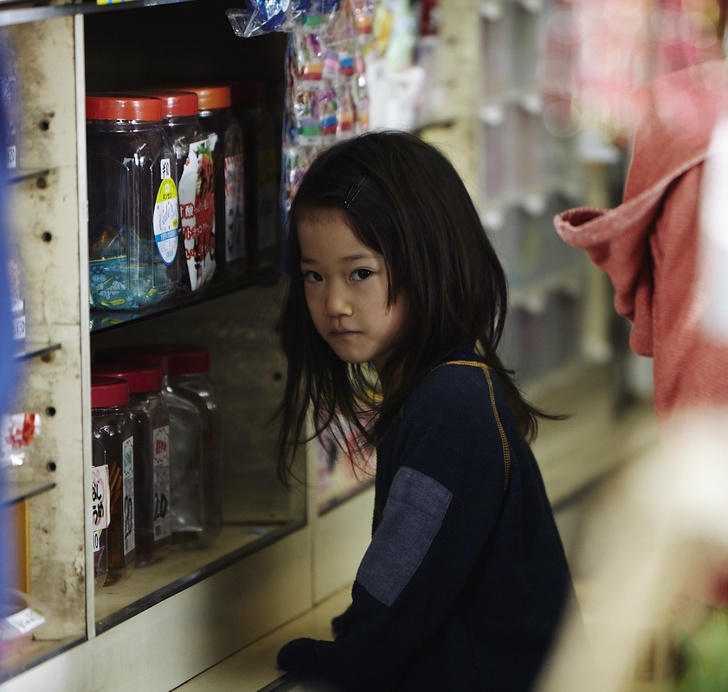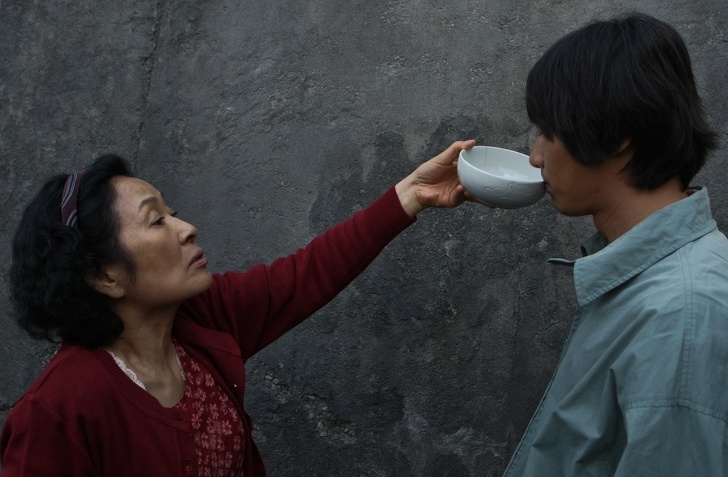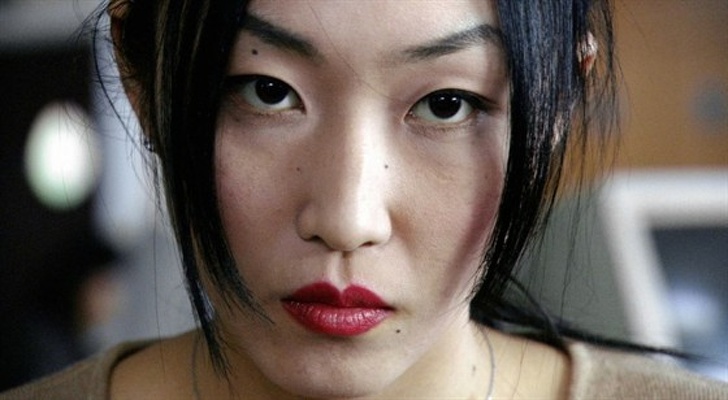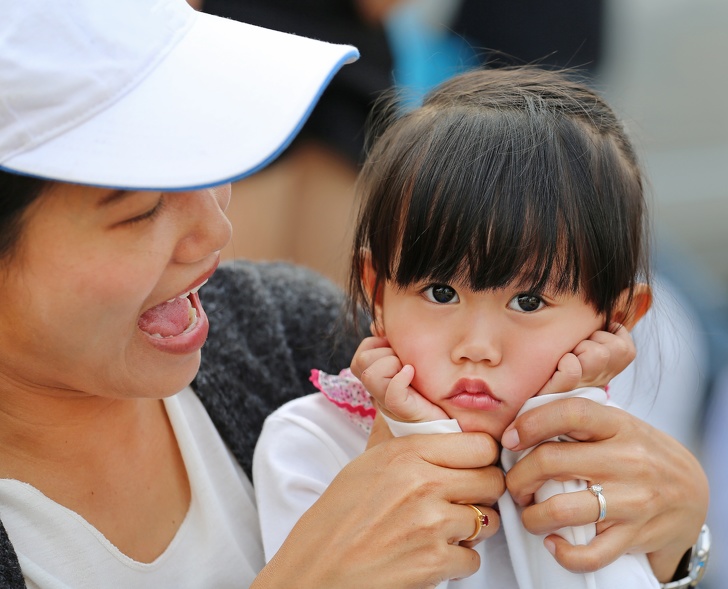In Japan, some well-off families adhere to a set of unusual parenting rules. It boils down to mothers paying the closest possible attention to their little ones’ education. At times, things border on the absurd: moms enroll 6-month-old babies in kindergartens to prepare them for school, and personally escort 17-year-olds to university exams, holding their hand all the way to the classroom. These women are called ’Kyoiku Mama’ or ’Super-Moms.’
We at ViralSection decided to find out what these ladies are hoping to achieve, what society at large thinks of them, and whether this approach to parenting actually brings the desired results!
For Japanese children, career growth training begins in kindergarten.

Japan is a land of intellectual equality. All kids are considered equally gifted, teachers shy away from dividing their students into high and low achievers. Every child knows that if something doesn’t go right the first time, they need to try to do it properly once again. They even memorize this statement in the classroom.
The values instilled at school tie in perfectly with traditional home values. Family ties are very strong in Japan. Usually, the roles within a family are distributed in a predictable way:
- The father provides financial stability.
- The mother does the housework and takes care of the children.
In prosperous families, parents try to choose the best kindergarten for their kids, with the aim of later getting them into the best school, and then — the best university. Typically, it’s the mothers who make sure that all these transitions occur as planned. They not only make their children study hard, but also do their homework for them, create an ideal learning environment, and — last but not least — teach the little ones discipline.
Also, these doting moms tend to cuddle their kids in their arms, hug them all the time, and give them all kinds of exercise. Presumably, that’s why some call these children ’Chihuahuas,’ comparing them to women’s favorite lapdogs. Super-moms consider it perfectly normal to read a 6-month-old baby a novel in 4 different languages or to explain aircraft mechanics to a toddler.
Many super-moms don’t care at all about their daughters’ future and they concentrate all their efforts on their sons.

The term ’Kyoiku Mama’ usually has derogatory tones. It alludes to a certain stereotype, which is present in Japanese culture. Super-moms are the type of women who constantly watch over their kids, escorting them to school and meeting them in the schoolyard after lessons. They make their children study day and night, despite the fact that this might harm the little ones’ physical and mental health.
A super-mom is one of the least favorite pop culture characters of modern Japan. This type of person is often likened to American mothers who desperately try to get their kids into Hollywood (by making them take part in fashion shows, beauty pageants, etc.) whether they like it or not. However, while the general public is critical of these parents, their approach seems to work. Some ’Chihuahuas’ really do make a good life for themselves. And, there are always women who want their offspring to be famous and successful!
More often than not, overbearing Japanese mothers concentrate all their efforts on their sons. As for their daughters — they’re free to do whatever they want. Many super-moms don’t even know the names of the colleges their girls decide to attend. The boys could only dream of this luxury — for them, receiving the ’right’ education is almost a matter of life and death!
Interestingly enough, Japanese fathers show no interest in seeing their kids turn into prodigies. Most likely, that’s because men in Japan are too focused on work to pay close attention to anything else.

Super-moms tend to live in well-to-do urban areas. Most of them belong to the middle class. They watch family-themed TV programs and buy magazines and products aimed at mothers. All these things inevitably shout: ’Raise your children better!’. As a result, this type of woman starts to take parenting a little too seriously. These ladies devote every spare minute to their kids. As for their idea of spending time on themselves — it doesn’t go further than ’having a bite to eat’ and ’taking a nap.’
At times, super-moms are also called ’madzillas’ (from the words ’mama’ and ’Godzilla’), or ’mamagons’ (a combo of ’mama’ and ’dragon’).
Japanese parents will go to great lengths to enroll their kids in a prestigious kindergarten or school.

When it comes to getting their kids into top-rated educational institutions, some parents resort to illegal methods. For instance, one restaurant owner tried to offer a $95,000 bribe to the manager of the country’s most prestigious kindergarten!
The kindergarten in question is called Aoyama Gakuin. Each year, it accepts only 40 youngsters, out of more than 2,000 applicants. To secure a place, a child must pass a number of extremely difficult tests.
A few years ago, a book by Ryoko Sato caused quite an uproar in the Japanese media. This book was titled Juken wa Hahaoya ga Kyu-wari (approximate translation: ’With Test-taking, Mother is 90%’), it details the author’s approach to raising her 4 children. In short, Ryoko followed 3 core rules:
- No romantic involvement with one’s husband
- Children receive maximum possible attention
- Kids mustn’t fall in love
As a result, all 4 graduated from the University of Tokyo (the best university in the country) and became successful doctors. However, the book doesn’t talk about the psychological effects Ryoko’s approach had on her children, her husband, and herself.

In Japan, mothers compete with each other in making their little ones study harder. They use all sorts of rules, too. For example, in the evenings, a super-mom might keep her little boy in her bedroom, instead of letting him do homework in his own room. This is done to make the neighbors think that the child is away or asleep (the windows of his room aren’t lit, right?!). As a result, other madzillas allow their offspring to take some time off. Ultimately, these lost hours of study might cost the neighbors’ kids their edge in the education race.
Japanese parents control their kids from birth to the day they get into college.

Super-parents keep a watchful eye on their children, even after they graduate from high school. Most elite university applicants come to big cities accompanied by their moms, who live in hotels for the duration of the entrance exam period. Many of these ladies make sure to escort their boys to campus (holding their hand, if need be). They take them to the right auditorium, and then patiently sit in the lobby, waiting for the exam to end.
If a boy fails his entry exams, his super-mom makes him study for another year (or even several years), with the aim of applying to the same university once again. Enrolling in some other ’inferior’ institution is not an option.
While madzillas are still a curiosity that is indigenous to Japan, parents all around the world want their kids to be successful. It is not uncommon for the little ones to study way beyond their school’s curriculum, attending various courses and workshops in their spare time. What’s your opinion — is this the right way forward, or should we allow our children more free time and let them make their own choices?
Preview photo credit Fear and Trembling / Bac Films





















